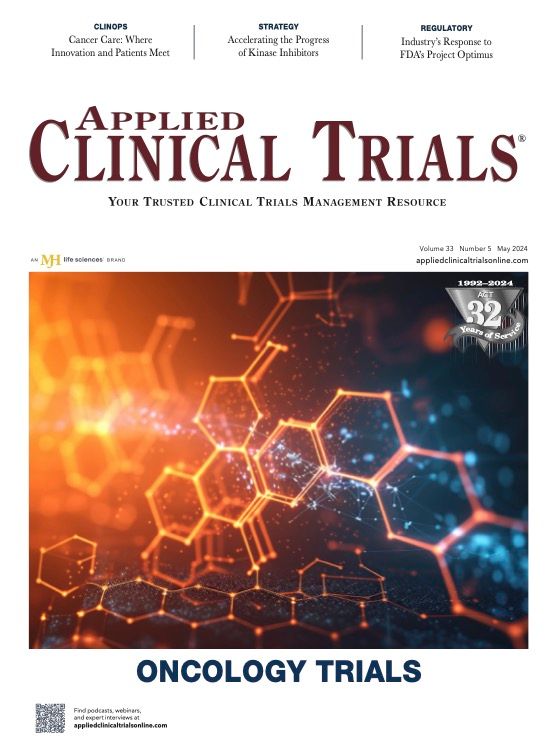A Promising Future for Oncology R&D
While recent improvement in clinical trial enrollment levels in cancer may seem modest, there are notable advancements moving the needle in expanding the pool of potential participants, as our May issue explores.

Oncology clinical trials have always been a unique area in the R&D landscape. One of their greatest and longest-standing challenges has been enrollment. The number of patients participating in clinical studies for cancer, when compared to overall levels, has always been heavily lopsided to the low end—and even further so when you measure minority patient populations specifically. However, change could be on the way. According to a recent study published by the Journal of Clinical Oncology, which reviewed data from the 1,200 Commission on Cancer programs, the overall estimated patient participation rate in cancer treatment trials was 7.1% during the period 2013-2017, which was higher than historical estimates of <5%.
While the improvement seems marginal, what are some of the advancements moving the needle in perhaps expanding the pool of potential participants in oncology studies? To that end, our May issue of Applied Clinical Trials examines what the future landscape of oncology R&D could look like.
Leading off our coverage is a look at the scientific advances and emerging modalities that are pacing drug development efforts in cancer. Following that is an article on harnessing the potential of kinase inhibitors (KIs) for future advances in cancer. According to the authors, more than 50 KIs have been approved by the FDA to treat 20 types of cancer. Notably, with KIs, physiologically-based pharmacokinetic modeling is used for first-in-human pharmacokinetic predictions early in the discovery process, and for informing inclusion/exclusion criteria for the clinical trial protocol. This model can be employed if a sponsor is considering combining its KI drug candidate with another small molecule, to manage comedications, and create virtual cancer patient populations to evaluate compounds.
Wrapping up our May feature articles is an overview of the FDA’s recently released guidance in support of Project Optimus, which is a dosing-reform program established by the agency's Oncology Center of Excellence. Since the FDA announced the initiative in 2021, the industry has responded with a wave of technological advancements, especially driven by artificial intelligence. With Project Optimus, the authors note that the FDA has taken a clear position of shifting away from traditional chemotherapy and promoting more progressive tailored approaches.
Again, while recent increases in cancer trial enrollment seem minimal at the moment, with the innovations showcased in this issue of ACT (also check out our "In Focus" dive into the complex playing field for oncology trials), plus the many more out there, I am confident the industry is on the right path toward bringing cancer patients life-changing therapies faster and more efficiently than ever before.
As always, thank you for reading.
Mike Hennessy Jr is president and CEO of MJH Life Sciences®

FDA Grants Priority Review to Merck’s sBLA for Winrevair After Early Success in ZENITH PAH Trial
July 2nd 2025Merck’s bid to update Winrevair’s label advances with FDA priority review, backed by Phase III ZENITH data showing a 76% reduction in major morbidity and mortality events in patients with pulmonary arterial hypertension.
Unifying Industry to Better Understand GCP Guidance
May 7th 2025In this episode of the Applied Clinical Trials Podcast, David Nickerson, head of clinical quality management at EMD Serono; and Arlene Lee, director of product management, data quality & risk management solutions at Medidata, discuss the newest ICH E6(R3) GCP guidelines as well as how TransCelerate and ACRO have partnered to help stakeholders better acclimate to these guidelines.
Phase III PROMINENT Trial Initiated to Evaluate Felzartamab for Primary Membranous Nephropathy
June 30th 2025The global Phase III PROMINENT trial has begun dosing patients to evaluate felzartamab in treating primary membranous nephropathy, a serious autoimmune kidney disorder with no FDA-approved therapies.
Putting Collective Insights Into Action to Advance Cancer Care: Key Examples From ASCO 2025
June 27th 2025At ASCO 2025, clinical operations leaders gained critical insights into how AI tools, bispecific antibodies, and evolving treatment paradigms are reshaping trial design, endpoint selection, and patient stratification.